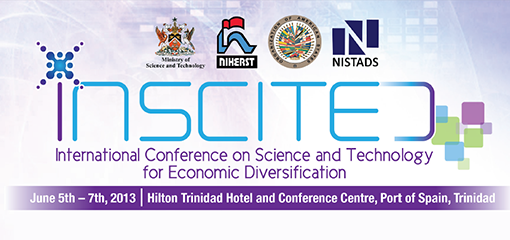
Scientific knowledge and technology provides countries with the tools needed to support economic transformation and sustainable development. In emerging economies, science and technology institutions must now focus on areas over which they have influence - higher education and training, creating labour market efficiency, fostering technological proficiency and innovation - to diversify their countries' economic base and improve their competitiveness in the global marketplace. Moreover, science can make a valuable contribution to achieving the Millennium Development Goals (MDGs), improving the lives of those in emerging market and developing countries.
The National Institute of Higher Education, Research, Science and Technology (NIHERST), Trinidad and Tobago, the Organization of American States (OAS) and CSIR-National Institute of Science Technology & Development Studies (NISTADS), India, invited the public to participate in their first joint conference entitled International Conference on Science and Technology for Economic Diversification - INSCITED 2013.
INSCITED 2013 sought to promote scientific research collaboration between India, Trinidad & Tobago and other emerging economies facing similar developmental challenges. The Conference aimed to introduce practical policy solutions to the following challenges:
- Weak links between science institutions and the private sector
- Outdated or non-existent science and technology policies in most countries
- 'Brain drain' associated with scientists, engineers and technicians leaving the region to work in developed nations
- Weak and thinly spread R&D institutions or centres
INSCITED 2013 served as a platform for interactive learning between India, Trinidad & Tobago, and international experts, policy-makers and researchers in the various areas of higher education and training, labour markets, and science and technology.
List of topics
Inclusive Growth and Economic Diversification
- S&T policy for supporting economic diversification and sustainable development
Human Capital Development in a Globalised Setting
- Leveraging the Diaspora for reverse brain drain
- Emerging patterns of higher education - open and distance learning policies and systems
Technology and Sustainable Development
- Promoting technology transfer in various sectors and to SMEs
- Developing high technology and ICT-enabled businesses
- Advanced materials and manufacturing



